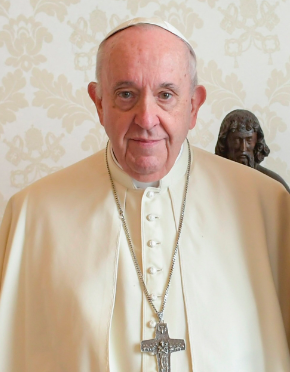Pope Francis, the first Latin American pontiff and one of the most influential religious leaders of the 21st century, passed away peacefully at 7:35 a.m. on Monday at the age of 88. The official announcement came from Cardinal Kevin Farrell, who read the solemn statement from the chapel of the Domus Santa Marta, the papal residence where Francis had lived throughout his 12-year papacy.
“Today at 7:35 in the morning, the Bishop of Rome, Francis, returned to the house of the Father,” Cardinal Farrell announced, marking the beginning of mourning for the world’s 1.4 billion Catholics His death came just a day after a brief appearance on Easter Sunday, where he greeted pilgrims and blessed thousands in St. Peter’s Square—his final public gesture of love and devotion.
Born Jorge Mario Bergoglio in Buenos Aires, Argentina, Pope Francis broke centuries of tradition as the first pope from the Americas and the first Jesuit to ascend to the papacy. From his very first words as pope—his humble “Buonasera” from the loggia of St. Peter’s Basilica—Francis signaled a shift in tone for the Church. He chose simplicity, humility, and servant leadership as guiding principles for his pontificate.
Despite battling chronic lung conditions and enduring several health scares—including a recent 38-day hospitalization for double pneumonia—Francis remained steadfast in his mission. He continued to lead, minister, and advocate for the poor, the marginalized, and the voiceless with unwavering dedication.
Throughout his papacy, Pope Francis sought to realign the Catholic Church with the heart of the Gospel: love, mercy, and justice. His efforts included reforms to Vatican finances and governance, a renewed emphasis on environmental responsibility, and a firm yet compassionate outreach to communities historically overlooked by the Church. He famously questioned, “Who am I to judge?” when asked about LGBTQ+ Catholics, a remark that symbolized his desire to build a more inclusive church.
Francis also took bold steps on the global stage, visiting war-torn regions, signing historic agreements, and urging peace and unity among world religions. He met with both the Patriarch of the Russian Orthodox Church and Islamic leaders, and made history by visiting the Arabian Peninsula and Iraq, demonstrating his commitment to interfaith dialogue and peacemaking.
However, his papacy was not without controversy. Traditionalists within the Church voiced concerns over his progressive tone, especially regarding his clampdown on the Latin Mass and his nuanced approach to social issues. His handling of sexual abuse scandals, particularly in Chile, also drew sharp criticism, though he later admitted errors and took corrective steps.
Even during the unprecedented challenges of the COVID-19 pandemic, Francis remained a steady spiritual presence. Leading from a locked-down Vatican, he called the world to solidarity and compassion. “We are all in the same boat,” he declared during a haunting address to an empty St. Peter’s Square in March 2020, inviting humanity to row together toward hope.
Following his passing, the Vatican will commence traditional rites, beginning with private mourning among Vatican officials in the Santa Marta chapel, before opening St. Peter’s Basilica to the public for final respects. The ceremonies will culminate in a papal funeral and the conclave to elect his successor.
Pope Francis’ death marks the end of a transformative era in the history of the Catholic Church. His tenure was defined by simplicity, courage, and an unwavering commitment to the Gospel. In life and in death, he reminded the world of the power of humility and the importance of compassion—a legacy that will undoubtedly echo through generations.

